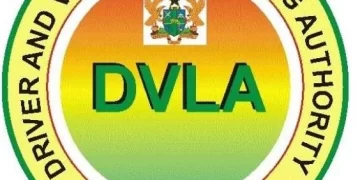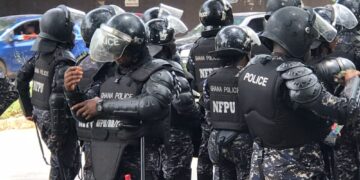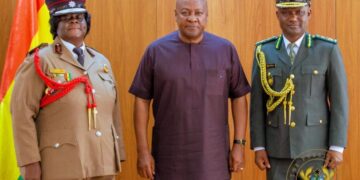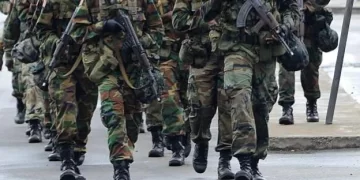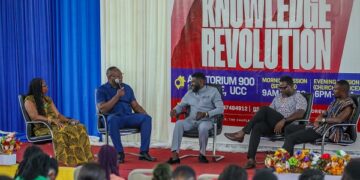Peace Corps Volunteers from the United States (US) have been honored for their major contributions to improving sanitation and agricultural development at Kuldanali and Pishigu in the Savelugu and Karaga Assemblies, respectively, in the Northern Region.
The arrival of Peace Corps Volunteers in the Kuldanali and Pishigu communities in 2016 marked the beginning of an end to their sanitation problems, as well as a revolution in their agricultural development activities, according to some members of the Kuldanali and Pishigu communities.
The Ghana News Agency spoke with some residents of those communities to learn more about the effects of the US Peace Corps Volunteers’ activities in their communities as the US Peace Corps celebrates its 60th anniversary in Ghana on March 1, 2021.
When Christopher Hill, a Peace Corps Volunteer, arrived in Kuldanali in 2016 for his two-year assignment, he found that residents’ attitudes toward health and sanitation were lacking, as they practiced open defecation and many adults and children in the area suffered from typhoid and diarrhea.
According to news, he acted rapidly and introduced behavioural improvements as well as communication techniques aimed at reminding people about the importance of ending open defecation.
The volunteer designed 40 household latrines for the citizens using a grant from the US government and community labor.
Susan Macgrathan, a Peace Corps Volunteer who served from 2018 to 2020, carried on the work of Christopher Hill and assisted in the provision of clean drinking water to the area.
Read Also: Lawyer fires Audit Service board over Domelevo’s DoB issues
As a result of their efforts, the Kundanali group was declared open defection-free in 2019, with the majority of households now owning household latrines and their children no longer suffering from diarrhea.
Ms. Macgrathan has worked to instill a savings culture among farmers by introducing them to the Village Savings and Loans Association concept, which they adopted and are now using to save and borrow money to grow their agricultural businesses.
Between 2016 and 2018, two Peace Corps Volunteers, Micky Sobir and Corner West, came to Pishigu and introduced behavioural changes and communication strategies in the area, as well as replacing broken solar panels of mechanised boreholes to boost water supply in the area with grants from the US Government, and constructing 170 household latrines for the residents.
Mr Kwabena Adeti, who served as a liaison between the Kuldanali community and the Peace Corps Volunteers in the region, said that even though the US Peace Corps Volunteers’ duty tour in the community had ended, the lessons they instilled in members of the community have remained with them, as evidenced by the community’s approach to sanitation.
Mr Yakubu Zakaria Tia, the Pishigu community’s point of contact with Peace Corps Volunteers, also reported that although Pishigu has not yet declared open defecation free, the Peace Corps Volunteers’ contribution has greatly aided in improving sanitation practices in the region.
The Peace Corps is a non-profit organization that offers international social and economic development assistance to underserved populations through a volunteer program managed by the US government.
On March 1, 1961, when then-US President John F. Kennedy dispatched 23 young Americans to provide committed services in the fields of health, agriculture, community development, education, and business orientation, Ghana received its first US Peace Corps Volunteers.
More than 5000 US Peace Corps Volunteers have been stationed in Ghana to date, helping to reinforce the relationship between the two countries as they work together to improve conditions in different sectors of the world, including lives and local economies.
SOURCE: ATLFMONLINE


